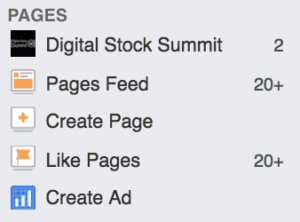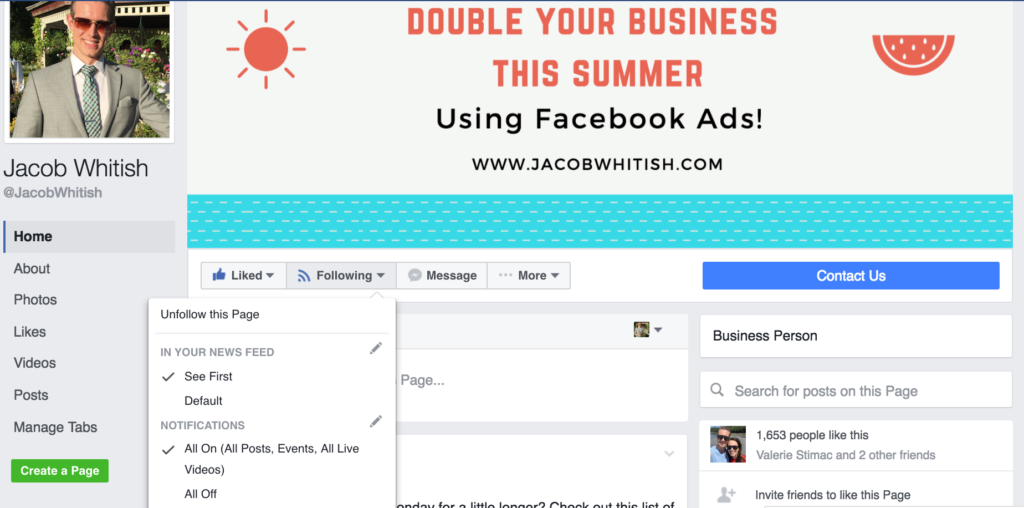Probably.
Ever since Facebook launched it has taken a special pride in delivering the best and most relevant content to it’s users based on their own interests and preferences. Now, 12 years later, the sophistication that they are able to employ in meeting that end has possibly reached it’s peak- at the expense of the publishers.
For years now, publishers and brand managers have been reporting a decline in organic Facebook posts which started to come to a head in 2014 when the collective voice of frustrated marketers prompted a response from the Facebook’s VP of Advertising Technology, Brian Boland.
“Over the past few months, I’ve read articles and answered questions from many people who are concerned about declines in organic reach for their Facebook Pages,” said Boland.
He continued,
“My colleagues and I at Facebook understand that this has been a pain point for many businesses, and we’re committed to helping you understand what’s driving this change … ”
The two competing factors driving the change that Boland cited were an excess in content being produced, and the desire by Facebook to only show it’s users the best and most relevant content rather than the old way of showing a user everything available. The upside that marketers took away from this talk was that there is a lot a publisher could do to counteract some of those changes, such as being more selective in the content being published and using some capital to boost posts.
Since the early days of Google’s reign on the internet, the phrase ‘Content is King’ has reigned supreme. For most, this meant pushing out more content than the next guy in order to be heard and stand out in the noise. It seems that just like Google, Facebook has decided to crack down and punish those who produce sub-par content just to get better rankings or top of feed appearances.
Facebook defines organic reach as: “how many people you can reach for free on Facebook by posting to your Page.” 2012 seems to be the turning point where prior to that year organic post reach was much, much larger than it is now. On average, publishers began to see that only about 16% of their audiences were able to see the posts in their news feeds.
A study undertaken around this time found that between February 2012 and March 2014, the average organic reach for a Facebook Business Page dropped from that 16% figure, all the way down to around 6%. Talk about cratering…
Research from leading agency Oglivy suggests that there could also be a difference in reach by how many fans your page has. For instance, pages with more than 500,000 likes could see as low as 2% reach, while smaller pages might have triple that amount.
“Increasingly Facebook is saying that you should assume a day will come when the organic reach is zero.”
At this stage of the game, the biggest draw for businesses to Facebook (It’s audience) is also the biggest detriment to any individual business finding success without an ad budget to spend on it. There are simply too many Pages producing too much content for too many fans, which means competition for visibility on the News Feed is high. Facebook’s commitment to surfacing only great and relevant content further detracts from that reach of the good ol’ days.
Of course, there could be another explanation.
Many of us in the marketing world suspect that while this commitment to users probably did have an effect on the organic reach, the real motives may be of a more selfish persuation – to boost the ad revenue on a previously flatlining revenue stream.
At this stage, Facebook has evolved into more of a paid marketing platform than an organic one, and that’s ok. It’s not necessarily bad, it’s just a different tool with different goals and uses now than it was before. It does get rather tedious when a page manager must first pay Facebook to get it’s page in front of users and ask them to like their page, then pay someone to create content, then publish it, then pay for that content to reach it’s audience that they had to pay for in the first place. Sound a bit nuts? Yeah, I thought so too.
“Facebook may be pulling off one of the most lucrative grifts of all time; first, they convinced brands they needed to purchase all their Fans and Likes — even though everyone knows you can’t buy love; then, Facebook continues to charge those same brands money to speak to the Fans they just bought.”
– James Del, Gawker Media Content Studio, 2014
Facebook’s Boland even had to address this popular theory when the voices of disapproval got loud enough in a post titled: “Is organic reach dropping because Facebook is trying to make more money?”. He went on to say:
“No. Our goal is always to provide the best experience for the people that use Facebook. We believe that delivering the best experiences for people also benefits the businesses that use Facebook. If people are more active and engaged with stories that appear in News Feed, they are also more likely to be active and engaged with content from businesses.”
From the platform’s point of view, it’s just not a good experience to flood a user’s stream with irrelevant or sub-par content just because a page has a boatload of likes.
Really, Facebook has never stayed still for very long when it comes to optimizing the news feed so it shouldn’t be news to any one (And especially the marketers here!) that they can and do change the algorithms frequently.
How Facebook’s News Feed Algorithm Works
This past weekend I re-watched ‘The Social Network’ for fun and it sent me down a path of nostalgia where I ended up looking at the classic TheFacebook.com on the WayBack Machine. Remember those fun Top Gun quotes and the ‘A Mark Zuckerberg Production’ in the footer of the pages? Those were my favorite part if we are talking candidly here. The point of this is, back in 2004-2006 when Facebook first started playing with the newsfeed concept it was pretty simplistic. Different post types were given different weights and the newsfeed delivered you content based on what had the highest weighting in conjunction with the amount of interaction that a particular post received.
As time went by, this content delivery and curation algorithm became more and more complex to factor in more and more variables such as recency and relationships between the page or person who shared the content and the person interacting with it later on. Known as EdgeRank, this iteration was pretty advanced for its time. Back in 2011 though Facebook ditched that version for a brand spanking new algorithm based in machine learning which is the version that we see today. This new algorithm learns and adapts as time goes on and customizes the content for a user based on just about every variable and possible interaction that you could think of.
Facebook’s CPO Chris Cox told Time Magazine in 2015:
“If you could rate everything that happened on Earth today that was published anywhere by any of your friends, any of your family, any news source…and then pick the 10 that were the most meaningful to know today, that would be a really cool service for us to build. That is really what we aspire to have News Feed become.”
So there we have it, the algorithm that feeds you a daily stream of cat pictures and mouth-watering recipes is a self-learning machine program that wants to show you the most meaningful and relevant content in the world for your specific tastes and interests.
How to Deal With Declining Organic Reach
1) Carefully moderate your own content and only share the best
2)Remind your Fans they can go to Pages Feed on the left sidebar of their news feed to see content from pages they’ve liked

3)Educate your followers that they can update their notification settings from your page

4) Encourage fans to engage with your posts when they do see them in order for them to see more of them
5) Re-allocate your time and effort toward your owned assets such as your blog or other media channels that you have complete control over
6) Start treating Facebook like a paid ad platform
7) If you do advertise, go beyond the basics and use the myriad tools available to target in on your most valuable audience so that money doesn’t go to waste
Finally, here are some tools and features from Facebook’s own team that can help you maximize the effectiveness of your campaigns:
Conversion Tracking: Track the actions of site visitors after viewing your Facebook ad and measure how many are completing the actions most valuable to you.
Custom Audiences: Target Facebook ads based on your existing email list.
Lookalike Audiences: Target other Facebook users similar in nature to your current customers.
Audience Insights: Learn about your existing Facebook audience and their likes/interests/demographics to better target your ads.
Website Custom Audiences: Target Facebook users who have visited your website before.
Facebook Exchange: Place retargeted ads on Facebook for users who’ve visited a certain product or service page on your site so they see you everywhere.
Customizable Reporting: Create reports based on metrics that matter most for your business.
Your turn! What are your thoughts and experiences with Facebook’s organic reach decline? How has it affected your inbound marketing strategy?


